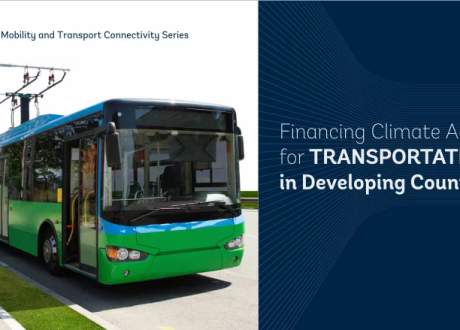
Report: Investing in resilient transport in low, middle-income countries yields $4.2 trln in net benefits
Investing in resilient transport in low- and middle-income countries (LMICs) requires $417 billion annually between ...

The 2022 Sustainable Development Report (SDR) showed that top 10 countries that are most rapidly transforming into sustainable and equal societies.
Finland came at the top of the 10 most sustainable countries followed by Denmark, Sweden, Norway, Austria, Germany, France, Switzerland, Ireland, and Estonia.
The report tracks these countries progress across all the 17 United Nations Sustainable Development Goals (SDGs) from zero hunger to clean and affordable energy, decent work and gender equality.
For the second year in a row, the world is not making progress on the SDGs overall due to the massive humanitarian impact of the Russian military operation in Ukraine which has exacerbated global energy and food insecurity as well as ongoing biodiversity, healthy and climate crises.
The report reviews the progress made each year on the Sustainable Development Goals since their adoption by the 193 UN Member States in 2015.
The fundamental SDG principles of social inclusion, international cooperation, responsible production and consumption, and universal access to clean energy are needed more than ever to fight these major challenges of our times.
Ahead of the SDG Summit in September 2023, which will convene at the level of heads of state under the auspices of the UN General Assembly, the SDR 2022 identifies major priorities to restore and accelerate SDG progress towards 2030 and beyond.
Restoring and accelerating SDG progress requires financing, data and statistics and sound and ambitious SDG policies and roadmaps. To operationalize the 17 SDGs and 169 targets, the UN Sustainable Development Solutions Network (SDSN) and partners promote six SDG Transformations that must be implemented in parallel and adapted to local contexts. These include quality education (SDG 4); access to good quality and affordable health care (SDG 3); renewable energy and a circular economy (SDGs 7, 12, and 13); sustainable land and marine management (SDGs 2, 14, and 15); sustainable urban infrastructure (SDGs 6, 9, and 11); and universal access to digital services (SDG 9). Scientific knowledge and networks are key to model structural changes over a time horizon of 10–30 years, which can inform policy discussions and consultations on the six SDG transformations.
Many countries have also developed strategies for SDG monitoring. 46 out of the 61 governments covered in the survey have adapted the SDG framework to their context and identified a set of nationally relevant indicators. On average, such national sets comprise around 135 indicators.
Several countries have also developed online platforms to report on progress towards the SDGs. These efforts to strengthen mechanisms to monitor sustainable development are critical to inform SDG interventions.
Investing in resilient transport in low- and middle-income countries (LMICs) requires $417 billion annually between ...
There are emerging and innovative trends in climate litigation as activists and citizens worldwide are ...
The transition to electric mobility continues to advance rapidly, reshaping global energy and auto markets. Electric ...


اترك تعليقا